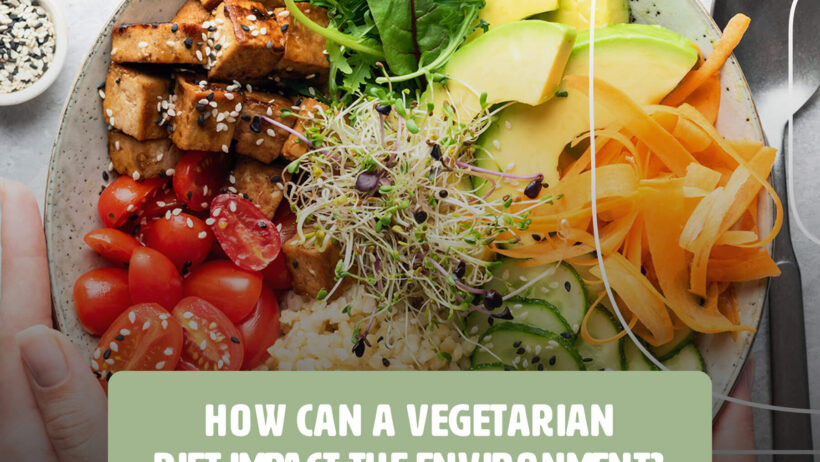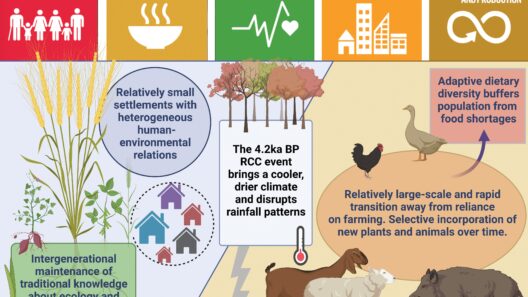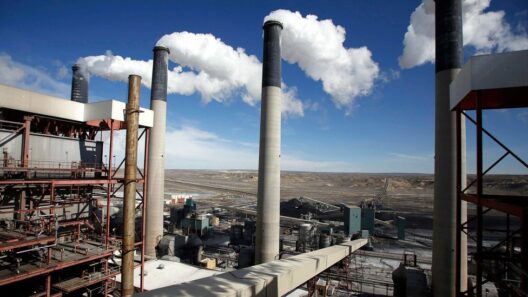In the intricate tapestry of climate change, the choices we make regarding our diets can significantly alter the course of our environmental impact. Among the myriad options one can pursue, opting for a vegetarian diet emerges as not only a personal choice but a pivotal act of ecological stewardship. The question that looms large is: does being a vegetarian truly mitigate the effects of global warming? To unravel this enigma, we must traverse through the complexities of agricultural practices, greenhouse gas emissions, and the profound interplay between our dietary habits and the planet’s health.
Firstly, it is essential to grasp the sheer magnitude of emissions linked to livestock farming. The agriculture sector, particularly animal husbandry, constitutes a lion’s share of greenhouse gas emissions. It is as if the earth dons a heavy cloak, burdened by the weight of these emissions. The methane emitted from ruminants and the nitrous oxide from animal manure are potent gases, trapping heat in the atmosphere more effectively than carbon dioxide. According to estimates, if everyone reduced their meat consumption, we could significantly lower the collective carbon footprint, akin to a collective exhale of relief for our planet.
In stark contrast, plant-based diets harness the very essence of sustainability. Vegetables, grains, and legumes typically require far fewer resources. They symbolize the concept of abundance without excess—a notable paradox in an age where overconsumption reigns. Transitioning to a vegetarian diet often embodies a shift toward sustainable farming practices, driving demand for crops that enhance soil health, conserve water, and promote biodiversity. Such dietary choices echo a return to the land, fostering a harmonious relationship with nature rather than a contentious one.
Delving deeper into the ecological ramifications of diet shifts, it becomes evident that vegetarianism contributes to a more efficient allocation of resources. The production of meat demands an extensive amount of land, water, and feed; conversely, cultivating plant-based foods requires far fewer environmental inputs. To put tangibility to this, consider the calculation that producing a single pound of beef can necessitate upwards of 1,800 gallons of water. In this context, each plate of quinoa or lentils symbolizes a shift towards a more judicious use of our precious natural resources, reinforcing the notion that every meal can serve as a testament to our commitment to the planet.
The ripple effects of adopting a vegetarian diet extend beyond personal carbon footprints. They reverberate across global food systems, influencing agricultural policies, market dynamics, and ecological conservation efforts. By prioritizing plant-based foods, individuals forge a path that encourages more sustainable farming practices—reducing chemical inputs and embracing organic methods that ultimately rejuvenate soils and protect local ecosystems. This shift transforms consumers into advocates for sustainability, wielding their forks as instruments of change.
However, the transition to vegetarianism is not without its complexities. The debate around nutritional adequacy raises questions regarding the balance of essential nutrients, particularly protein, iron, and vitamin B12. While skeptics may hastily conclude that a vegetarian diet cannot fulfill these needs, the culinary universe expands with vibrant choices. Proactive planning can ensure that nutrition is not sacrificed at the altar of environmental consciousness. Embracing a diverse range of fruits, vegetables, whole grains, nuts, and legumes can create a thriving palette of flavors and nutrients, ultimately leading to a holistic approach to health—a personal investment that parallels the investment in a healthier planet.
It is crucial to highlight that not all vegetarian diets are inherently equal when it comes to environmental impact. Processed vegetarian foods—high in sodium and sugar—often masquerade as healthy choices, yet leave a much larger footprint behind. Choosing locally sourced, organic produce amplifies the sustainability of a vegetarian diet. This notion of locality also fosters connections between consumers and local farmers, building communities dedicated to environmental health and social reciprocity, transforming a solitary act of eating into a collective movement for sustainability.
Moreover, the cultural dimensions of vegetarianism deserve attention. The diverse culinary traditions across the globe reveal how different societies have harmonized their diets with their local ecologies. From Indian dal to Mediterranean mezze, these vibrant cuisines offer a plethora of flavors that not only tantalize the palate but also celebrate the fruits of the Earth. Embracing vegetarianism can thus become a cultural exploration, enriching our diets while fostering respect for diverse agricultural practices and traditions.
Ultimately, while being a vegetarian does not provide a singular solution to the multifaceted challenge of climate change, it positions individuals as pivotal players in an expansive global narrative. Each small choice—be it selecting a meatless meal or advocating for sustainable food policies—contributes to a larger movement aimed at environmental restoration. The cumulative effect can be likened to a chorus, where individual notes come together to create a powerful symphony of resilience against global warming.
In conclusion, the interplay between a vegetarian diet and its capacity to reduce global warming is a compelling narrative of personal and collective action. The benefits extend beyond individual health, weaving a tapestry of societal and environmental wellness. As stewards of the Earth, our forks and knives could serve as instruments of change, driving the world toward a more harmonious existence with nature. Choosing to be vegetarian is a step towards a sustainable future—a commitment to safeguard the delicate balance of our planet while reveling in the delightful variety that plant-based eating has to offer.






